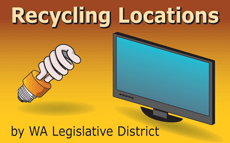Businesses and producer responsibility: lead or be led?
In a keynote address to the July 2017 U.S. Product Stewardship Forum hosted by PSI (the Product Stewardship Institute), John Coyne of Unilever Canada and the Canadian Stewardship Services Alliance (CSSA) delivered a remarkable speech on extended producer responsibility (EPR), its importance to fighting climate change, what it is and isn't, and the opportunities available for businesses:
"EPR is not simply about shifting responsibility for funding the collection of waste from local governments to businesses. EPR is not a tax nor should it ever be. EPR is also not waste management.
Instead EPR is focused on establishing effective programs to collect valuable materials so that they can be reused, and reused profitably, resulting in social, economic, and environmental benefits.
And while EPR alone will not eliminate climate change, of course, it is an essential part of the circular economy. And you can’t solve climate change without the circular economy.
The circular economy is simply an economy with no tailpipe. An economy where nothing gets spewed out the back end. We achieve that by creating a continuous loop that keeps all those molecules in play, maximizing their utility, and value, instead of being dumped into a hole in the ground, or shunted into the water supply, or emitted into the atmosphere.
My question for businesses: will you lead? Or will you be led? What are the consequences of not acting?"
Watch the full 28-minute video of John Coyne's speech on YouTube:
